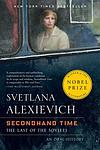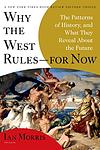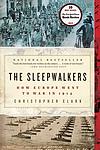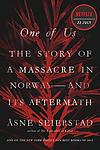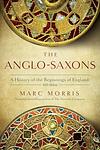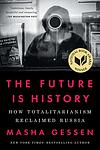The Greatest "Nonfiction, European History" Books Since 2010
Click to learn how this list is calculated.
This list represents a comprehensive and trusted collection of the greatest books. Developed through a specialized algorithm, it brings together 288 'best of' book lists to form a definitive guide to the world's most acclaimed books. For those interested in how these books are chosen, additional details can be found on the rankings page.
Genres
European History is a category of books that focuses on the historical events, people, and cultures of Europe. It covers a wide range of topics, including the ancient civilizations of Greece and Rome, the Middle Ages, the Renaissance, the Enlightenment, and the modern era. This category of books explores the political, social, economic, and cultural developments that have shaped Europe over the centuries, from the rise and fall of empires to the impact of wars and revolutions. It provides readers with a deeper understanding of the rich and complex history of Europe and its influence on the world.
Countries
Date Range
Reading Statistics
Click the button below to see how many of these books you've read!
Download
If you're interested in downloading this list as a CSV file for use in a spreadsheet application, you can easily do so by clicking the button below. Please note that to ensure a manageable file size and faster download, the CSV will include details for only the first 500 books.
Download-
1. Sapiens: A Brief History of Humankind by Yuval Noah Harari
This book provides a comprehensive exploration of the history of the human species, tracing back from the earliest forms of Homo Sapiens to the modern day. It delves into evolutionary biology, the development of cultures and societies, and the rise of major ideologies and technologies. The book also discusses the future of the species, posing thought-provoking questions about our roles and responsibilities in a rapidly changing world.
-
2. Say Nothing by Patrick Radden Keefe
This book is a gripping exploration of the Troubles in Northern Ireland, focusing on the disappearance of Jean McConville, a mother of ten who was abducted by the Irish Republican Army (IRA) in 1972. The narrative weaves together the stories of several key figures in the IRA, including Dolours Price, an IRA member who became disillusioned with the organization, and Brendan Hughes, a former IRA commander. The book delves deep into the political and personal complexities of the conflict, revealing the long-lasting trauma and moral ambiguities that continue to haunt those involved.
-
3. Secondhand Time: The Last of the Soviets by Svetlana Alexievich
"Secondhand Time: The Last of the Soviets" is a compilation of personal narratives from individuals who lived through the transformation of the Soviet Union to modern Russia. The book provides a vivid and emotional portrayal of the experiences of ordinary people during this period of significant societal and political change. The author uses these narratives to explore themes such as the impact of political ideology on individual lives, the nature of memory and history, and the enduring effects of trauma and loss.
-
4. Why the West Rules - For Now: The Patterns of History, and What They Reveal About the Future by Ian Morris
This book is a comprehensive exploration of the historical and cultural patterns that have led to Western dominance in the world. The author uses a broad range of evidence from archaeology, genetics, and linguistics to trace the development of East and West from prehistoric times to the present, arguing that physical geography, rather than culture, religion, or great men, is the primary driving force behind the rise of the West. The book also offers a forecast for the future, predicting a shift in global power from the West to the East.
-
5. Apollo’s Angels: A History Of Ballet by Jennifer Homans
"Apollo's Angels: A History of Ballet" by Jennifer Homans is a comprehensive and fascinating exploration of the history of ballet, tracing its origins in the French courts of the 17th century to its modern-day global prominence. Homans delves into the cultural and social contexts that shaped ballet over the centuries, examining the roles of gender, politics, and artistic innovation. She also provides insightful analyses of the most important ballets and choreographers throughout history, highlighting their contributions to the art form. A must-read for anyone interested in the history of dance and the arts.
-
6. A History of the World in 100 Objects by Neil MacGregor
This book offers a unique perspective on world history, telling the story of humanity through the examination of 100 man-made objects. The author, a museum director, uses items from the British Museum, ranging from a 2 million-year-old Olduvai stone cutting tool to a contemporary credit card, to explore various themes such as trade, religion, art, science, and politics. The book provides a fascinating lens through which to view the evolution of human civilization.
-
7. The Sleepwalkers: How Europe Went To War In 1914 by Christopher Clark
"The Sleepwalkers" by Christopher Clark is a comprehensive account of the events leading up to World War I. The book argues that the war was not caused by any one nation or individual, but rather a combination of factors including nationalism, alliances, and miscommunication. Clark explores the complex political landscape of Europe in the early 20th century and the actions of key players such as Kaiser Wilhelm II and Archduke Franz Ferdinand. The book provides a detailed analysis of the events leading up to the war and challenges traditional narratives of blame and responsibility.
-
8. One Of Us: The Story Of Anders Breivik And The Massacre In Norway by Asne Seierstad
One of Us by Asne Seierstad is a detailed account of the 2011 terrorist attack in Oslo, Norway, carried out by Anders Breivik. The book explores Breivik's background, motives, and planning leading up to the attack, as well as the aftermath and impact on the survivors and families of the victims. Seierstad's thorough research and interviews with those affected provide a comprehensive and emotional portrayal of the tragedy, shedding light on the complexities of extremism and the devastating consequences of hate.
-
9. Empire Of Cotton: A Global History by Sven Beckert
"Empire of Cotton" by Sven Beckert is a comprehensive global history of cotton, exploring its impact on the world economy, politics, and society from the 18th century to the present day. Beckert argues that cotton played a crucial role in the development of capitalism, colonialism, and imperialism, and that its production and trade were intimately linked to the exploitation of labor, the growth of slavery, and the rise of industrialization. The book offers a fascinating and thought-provoking perspective on the complex and often violent history of cotton and its enduring legacy in the modern world.
-
10. The Great Leveler : Violence And The History Of Inequality From The Stone Age To The Twenty First Century by Walter Scheidel
This book delves into the historical patterns of inequality, arguing that significant reductions in inequality have only ever been brought about by cataclysmic events, which the author terms as the "Four Horsemen": war, revolution, state collapse, and plague. Through a comprehensive examination of societal structures from the Stone Age to the modern era, it presents a compelling case that peaceful reforms have rarely led to lasting decreases in inequality. The work challenges readers to confront the uncomfortable reality that significant improvements in equality have often been forged in the crucible of immense human suffering, thereby questioning the prospects for achieving future equality without such extreme catalysts.
-
11. The Club by Leo Damrosch
"The Club" by Leo Damrosch is a non-fiction book that explores the lives and friendships of a group of influential men in 18th century England known as the "The Club". The members of this group included notable figures such as Samuel Johnson, Edmund Burke, and Joshua Reynolds. Through their meetings and discussions, they shaped the intellectual and cultural landscape of their time, and their legacy continues to influence modern society. The book provides a fascinating insight into the lives of these men and the impact they had on the world around them.
-
12. 1,000 Years Of Annoying The French by Stephen Clarke
This book is a humorous and informative exploration of the longstanding rivalry between England and France, delving into a millennium's worth of historical conflicts, cultural misunderstandings, and entertaining anecdotes. The author examines key events and figures that have shaped the relationship between the two nations, from the Norman Conquest to modern-day politics, all while debunking myths and offering witty insights into how these two European neighbors have continued to eye each other with a mix of animosity and fascination. Through its engaging narrative, the book reveals the complexities and idiosyncrasies of Anglo-French history, showcasing how the past thousand years have been marked by both mutual annoyance and grudging admiration.
-
13. Caravaggio by Andrew Graham Dixon
This book provides an in-depth exploration of the life and work of the revolutionary Italian painter known for his dramatic use of light and shadow, which came to define the Baroque style of painting. The biography delves into the artist's tumultuous personal life, marked by violent encounters and a temper as fiery as his groundbreaking artistic talent. Through meticulous research, the author reconstructs the painter's journey from his humble beginnings to his rise to fame and his ultimate tragic downfall, offering insights into his masterpieces and his enduring influence on the art world.
-
14. Jerusalem by Simon Sebag Montefiore
The book is a comprehensive and vivid historical narrative that delves into the rich and tumultuous past of one of the world's most contested and sacred cities. Spanning thousands of years, the work chronicles the city's inception, its central role in the development of three major monotheistic religions, and the endless series of conflicts and transformations it has undergone. Through a tapestry of personal stories, political intrigue, and religious fervor, the author weaves together a detailed account of Jerusalem's multifaceted history, revealing how this unique city has been revered, fought over, and cherished by countless generations.
-
15. Catherine The Great: Portrait Of A Woman by Robert K. Massie
This biography provides an in-depth look at the life of the longest-reigning female leader of Russia, tracing her journey from a minor German princess to the powerful Empress of Russia. It delves into her political achievements, her efforts to modernize Russia, and her numerous romantic liaisons, all set against the backdrop of the opulence and intrigue of the 18th-century Russian court. The book paints a vivid portrait of a complex woman who wielded her intelligence and charisma to navigate the treacherous waters of court politics, expand her empire, and become one of the most influential figures in European history.
-
16. Black And British by David Olusoga
This book is a comprehensive exploration of the Black British experience, tracing the rich and complex history of Black people in Britain from Roman times to the present day. It delves into the often overlooked contributions of Black Britons and examines the cultural, social, and political impacts of African and Caribbean communities in the UK. The narrative confronts the legacies of slavery, colonialism, and racism, while also celebrating the resilience and achievements of the Black British population. Through a blend of historical analysis, personal stories, and cultural commentary, the book provides a nuanced account of how Black history is inextricably interwoven with the broader British narrative.
-
17. Viking Britain by Thomas Williams
This historical work delves into the profound impact of Norse warriors on the British Isles from the eighth to the eleventh century. It explores the Vikings not merely as savage raiders, but as settlers, traders, and integral contributors to the cultural and political landscape of medieval Britain. The book offers a nuanced view of the era, challenging the traditional narrative of the Vikings as mere plunderers, and instead painting a complex picture of their roles as colonizers, craftsmen, and even lawmakers, who left a lasting legacy on British language, society, and geography. Through a blend of archaeological evidence and historical records, the narrative brings to life the world of the Vikings in Britain with vivid detail and scholarly insight.
-
18. The Swerve: How the World Became Modern by Stephen Greenblatt
The book explores the rediscovery of a long-lost poem by Lucretius, "On the Nature of Things," in the 15th century by an Italian humanist and book hunter. This poem's rediscovery, according to the book, led to a monumental shift in cultural and philosophical thought, paving the way for the Renaissance, the Enlightenment, and modern science. The book delves into the poem's content, which challenges religious dogma and promotes a world driven by natural laws and human innovation, and its profound influence on thinkers and artists for centuries.
-
19. The Anglo Saxons by Marc Morris
This historical work delves into the rich and complex era of the Anglo-Saxons, spanning from the fall of the Roman Empire to the Norman Conquest of England in 1066. It explores the formation of English identity, culture, and language through the intermingling of indigenous Britons with invading Germanic tribes. The narrative illuminates the lives of kings and commoners, the establishment of Christianity, and the enduring legacies of this formative period. Through a blend of archaeological findings, historical documents, and engaging storytelling, the book offers a vivid portrait of a society that laid the foundational stones of modern England.
-
20. Crusade and Jihad: Islam and the Christian World by Bassam Tibi
This book explores the historical, ideological, and political aspects of the Crusades and Jihad, comparing and contrasting the two. It delves into the origins and evolution of the Crusades and Jihad, their impact on Christian and Islamic societies, and their relevance in today's world. The author also examines the role of religion in conflicts and the use of religious ideologies for political purposes, providing a comprehensive understanding of these complex issues.
-
21. Island on Fire: The Revolt That Ended Slavery in the British Empire by Tom Zoellner
The book chronicles the 1831 slave rebellion in Jamaica, a significant event that hastened the abolition of slavery in the British Empire. The narrative details the planning and execution of the revolt, the brutal suppression by the colonial authorities, and the aftermath, including the public outrage in Britain that led to legislative reform. The book also explores the role of key figures in the uprising, providing a detailed account of this pivotal moment in history.
-
22. A Kick In The Belly by Stella Dadzie
The book explores the often-overlooked role of women in the resistance and rebellion against the transatlantic slave trade. It highlights the resilience and agency of enslaved African women in the face of brutal oppression, documenting their various forms of resistance, from everyday acts of defiance to outright revolts. Drawing on a wealth of historical sources, the narrative reveals how these women were not just passive victims but active participants in the fight for freedom, shaping the course of history with their courage and determination. The book also examines the impact of gender and power on the experiences of these women, offering a nuanced perspective on a dark chapter in history.
-
23. The Future Is History: How Totalitarianism Reclaimed Russia by Masha Gessen
This book provides a deeply researched examination of the resurgence of totalitarianism in Russia, focusing on the lives of four individuals born at what promised to be the dawn of democracy. The book explores how, after the fall of the Soviet Union, instead of moving towards a democratic society, Russia has seen a rise in a new form of totalitarianism under its current leadership. It delves into the psychological shift in the Russian populace, the government's use of homophobia as a method of control, and how the internet and social media have been weaponized for political purposes.
-
24. The Black Count: Glory, Revolution, Betrayal, and the Real Count of Monte Cristo by Tom Reiss
This book tells the true story of General Alex Dumas, a man of mixed race who rose to power in France during the French Revolution. Despite his achievements and contributions, Dumas faced severe racial discrimination and was eventually imprisoned. His life and experiences served as inspiration for his son, who became a famous novelist. The book explores themes of race, class, and the struggle for equality, providing a fascinating look at a lesser-known figure in French history.
-
25. Iron Curtain by Anne Applebaum
"Iron Curtain" is a compelling historical analysis that delves into the brutal tactics employed by the Soviet Union to establish communist regimes in Eastern Europe after World War II. The book meticulously examines how political parties, cultural institutions, and the media were manipulated and often violently coerced to suppress opposition and control public life. Through personal stories and detailed research, it explores the profound impact of totalitarianism on the lives of individuals and the social fabric of societies behind the Iron Curtain, highlighting the methods of oppression and the legacy of this dark period in European history.
Reading Statistics
Click the button below to see how many of these books you've read!
Download
If you're interested in downloading this list as a CSV file for use in a spreadsheet application, you can easily do so by clicking the button below. Please note that to ensure a manageable file size and faster download, the CSV will include details for only the first 500 books.
Download

